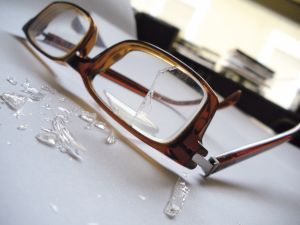In any premises liability claim, success often hinges on whether the property owner or operator had actual or constructive knowledge of a dangerous condition.

So in the case of a slippery floor, we have to determine whether a property or business owner knew the floor was wet or slippery.
However, it gets a little more complicated in claims alleging liability due to inadequate security or negligent security following a third-party crime. After all, it almost never happens that the property or business owner had actual knowledge of a crime before it takes place.
Therefore, the issue is whether there is constructive knowledge. That is, should the property or business owner have been aware of the likelihood of such a crime? Was it foreseeable?
That’s not always a straightforward determination, but it typically involves examination of past crimes at the site and the type of security measures taken in response. Often, it’s necessary to bring in an expert witness who can attest to norms and acceptable standards within the security industry to show not only whether certain actions were foreseeable, but whether the preventative actions were reasonable in light of the facts, or whether they were inadequate.
In the recent case of Bennett v. Highland Park Apartments, LLC, the Mississippi Supreme Court was asked to weigh a negligent security lawsuit in which a woman and her three children were injured in a home invasion robbery.
She later sued the apartment complex owner and manager for negligent security. Her expert witness testified this location was heavily advertised as a gated community. However, the gate was often broken or simply left open. This was true despite a number of violent crimes that had been reported at the complex prior to this incident.
Still, the property owner didn’t make an effort to repair the gate or to hire an armed security guard at the entrance to take names and license plate numbers of individuals entering the property.
This measure, the expert testified, would likely have prevented this crime because the assailants would have been deterred, knowing their identities and movement within the complex would be documented, and therefore easily traceable by law enforcement.
Still, trial court issued summary judgment for defense. In support of its decision, the court cited an earlier state supreme court ruling in Double Quick Inc. v. Lymas. In that case, the court ruled the expert security witness based the opinion largely on speculation and failed to prove breach of security as a proximate cause of plaintiff’s injuries. That case involved a gas station robbery shooting. The injured plaintiff argued the gas station could have taken a number of additional security measures to protect patrons. However, the expert witness in that case failed to show how taking these measures could have prevented plaintiff’s injuries.
To the contrary in this case, the Mississippi Supreme Court ruled the expert witness had shown how extra security measures by the gated community complex would have likely deterred the assailants and therefore prevented injury to plaintiff and her children.
Thus, the case was remanded for trial.
Call Fort Lauderdale Injury Attorney Richard Ansara at (954) 761-4011. Serving Broward, Miami-Dade and Palm Beach counties.
Additional Resources:
Bennett v. Highland Park Apartments, LLC, May 7, 2015, Mississippi Supreme Court
More Blog Entries:
Siruta v. Siruta – Husband Sues Wife for Child Car Accident Death, May 12, 2015, Fort Lauderdale Injury Attorney Blog
 Broward Injury Lawyer Blog
Broward Injury Lawyer Blog



